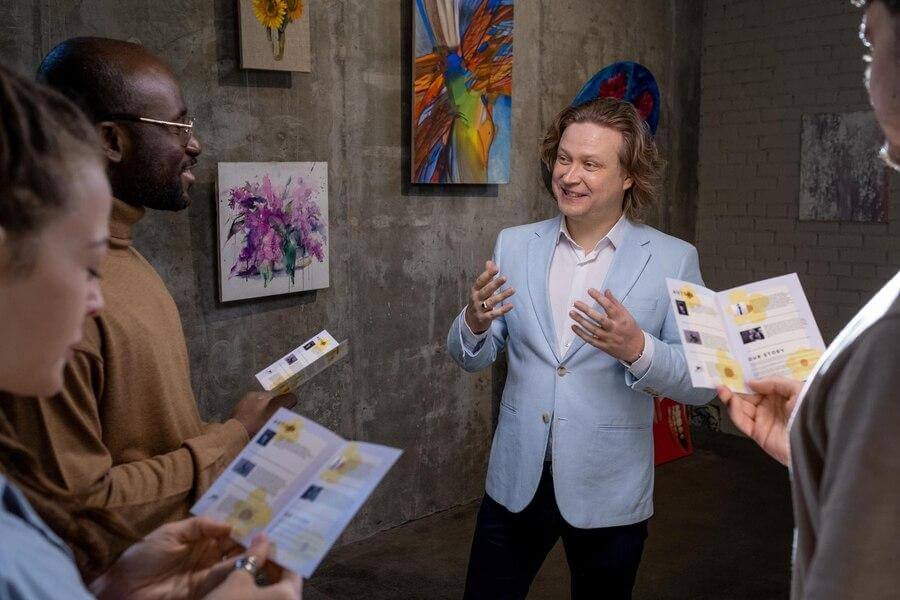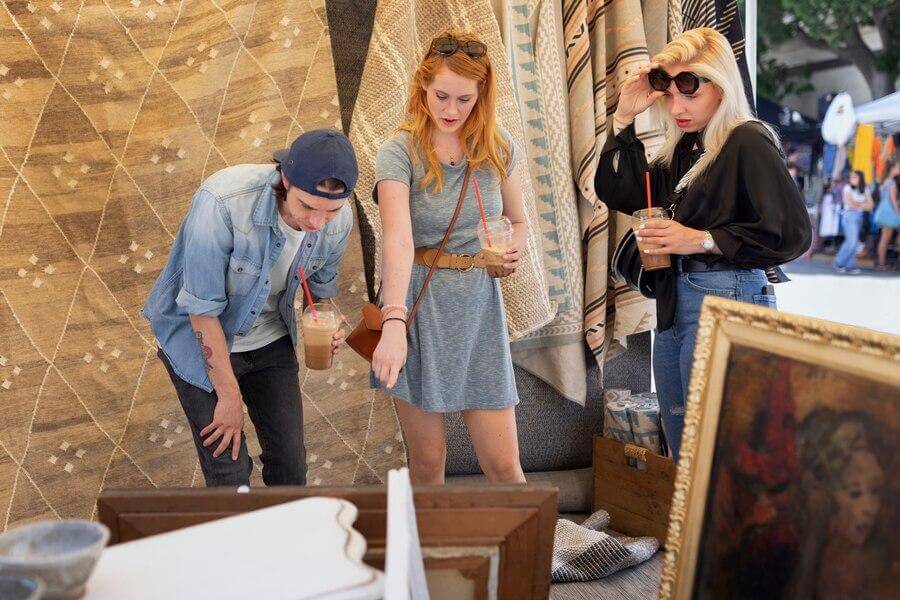Art collecting is more than just an investment or a passion—it’s an intimate experience. Yet, in today’s digital world, privacy concerns have become more pressing than ever. Many online marketplaces track users, collect bidding data, and expose participants to potential security risks. But what if you could engage in private art auctions with no-tracking bidding and full confidentiality? The rise of secure online art sales now makes this possible, allowing collectors to participate without sacrificing their anonymity.

The Problem with Traditional Online Auctions
Most online auction platforms rely heavily on user tracking. They monitor:
- Your bidding patterns
- The time spent viewing particular artworks
- Your transaction history
- Even your general browsing behavior outside the platform
This data is often used for marketing purposes or shared with third parties. According to a 2023 cybersecurity report, over 70% of online marketplaces collect and store users’ behavioral data. While this might seem harmless at first, it can lead to aggressive advertising, inflated prices based on perceived interest, and even security vulnerabilities.
Moreover, many traditional auction sites require participants to submit extensive personal information. This includes government-issued IDs, bank details, and addresses—data that, if leaked, could result in identity theft or financial fraud.
The Rise of Private, No-Tracking Art Auctions
To combat these risks, a new wave of confidential auction participation platforms has emerged. These platforms prioritize user privacy, encrypted transactions, and anonymous bidding. Here’s what sets them apart:
1. No Tracking or Data Collection
Unlike traditional auction houses, privacy-focused platforms do not track users’ activity. They avoid collecting unnecessary data, ensuring that bidders can engage in auctions without leaving a digital footprint.
2. Decentralized or Encrypted Transactions
Many private art auctions use blockchain technology or encrypted transactions to maintain bidder anonymity. This ensures that neither the auction house nor external parties can trace bids back to individuals.
3. Anonymous Bidding Protocols
Some platforms allow users to bid using pseudonyms or encrypted wallet addresses rather than personal accounts. This prevents sellers and other buyers from identifying who is behind each bid.
4. No KYC (Know Your Customer) Requirements
While traditional platforms often require extensive verification, private art marketplaces minimize or eliminate these requirements. Some only require cryptographic signatures or decentralized authentication methods.
5. End-to-End Encrypted Communications
Direct negotiations between buyers and sellers, as well as auction participation, occur through encrypted messaging systems. This prevents third-party interception or data leaks.

How Secure Online Art Sales Work
A truly protected art marketplace operates differently from mainstream auction sites. Below is a simplified step-by-step process:
- Registration Without Identity Exposure – Instead of email-based accounts, many platforms use blockchain wallets or encrypted logins.
- Accessing the Auction – Users browse available artworks without tracking cookies or behavioral analytics in the browser. However, to view auctions with no tracking, you need a VPN. It hides your IP address and does not allow you to find out your real IP address and then link it to your identity.
- Placing a Bid Anonymously – Instead of linking a bid to a username, the system processes bids through zero-knowledge proof methods, ensuring verification without revealing identities.
- Secure Payment Processing – Transactions occur via cryptocurrencies, smart contracts, or anonymous escrow services, preventing banks or third parties from monitoring purchases.
- Private Delivery Arrangements – Once the auction concludes, winners finalize delivery details through encrypted channels, ensuring that addresses and personal information remain undisclosed.
These mechanisms ensure confidentiality, security, and peace of mind for collectors who value privacy.
The Growing Demand for Privacy in the Art Market
The interest in private art auctions is growing. According to a 2024 report from the International Art Market Review, around 35% of high-net-worth collectors now seek alternative auction platforms that prioritize security and privacy. Additionally:
- 41% of online art buyers expressed concerns over personal data collection.
- 28% of collectors reported being targeted with aggressive marketing after previous purchases.
- 19% of buyers hesitated to participate in auctions due to potential security risks.
These statistics reflect an increasing awareness of digital privacy issues in the art world. As a result, secure online art sales are becoming a preferred alternative for many.

Who Benefits from Private Art Auctions?
1. High-Profile Collectors
Public auction participation can expose high-profile collectors to unwanted attention. Private art auctions provide them with discretion, allowing them to acquire pieces without public scrutiny.
2. Investors Avoiding Market Manipulation
Tracking-based auction sites can manipulate bidding by raising prices based on user interest. A protected art marketplace prevents such tactics, ensuring fairer pricing.
3. Collectors in Restricted Markets
Certain regions impose strict regulations on art sales and international transactions. Privacy-focused auctions provide a way for collectors to navigate these restrictions legally.
4. Sellers Seeking Confidentiality
Just as buyers wish to remain anonymous, sellers may also prefer discreet transactions. Some artists and collectors do not want their financial activities or asset holdings disclosed.
Challenges and Future Prospects
While confidential auction participation presents many benefits, challenges still exist:
- Limited mainstream adoption – Many collectors are unaware of these platforms, limiting their current reach.
- Regulatory concerns – Some governments push for stricter Know Your Customer (KYC) rules, which could impact privacy-focused marketplaces.
- Technical barriers – Blockchain and encrypted transactions, while secure, require users to be comfortable with decentralized technologies.
Despite these obstacles, the demand for anonymous and secure art transactions is rising. As privacy concerns grow, it’s likely that more collectors and sellers will turn to no-tracking bidding solutions.
Final Thoughts
The art world has always been a space of mystery, exclusivity, and discretion. However, modern digital platforms often undermine this by tracking user behavior, collecting data, and exposing buyers to unnecessary risks.
By participating in private art auctions with no-tracking bidding, collectors can regain control over their privacy. Secure online art sales offer the opportunity to acquire valuable pieces while remaining completely anonymous. With confidential auction participation and a protected art marketplace, the future of art collecting is moving towards a safer, more private, and fairer system.
